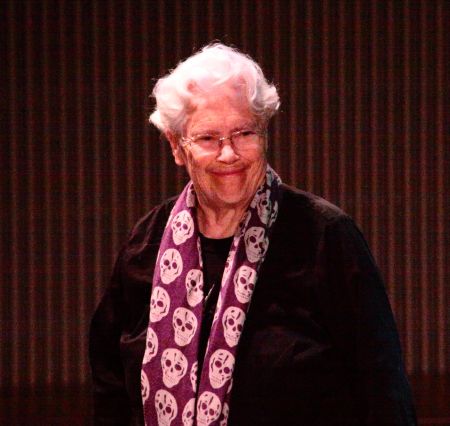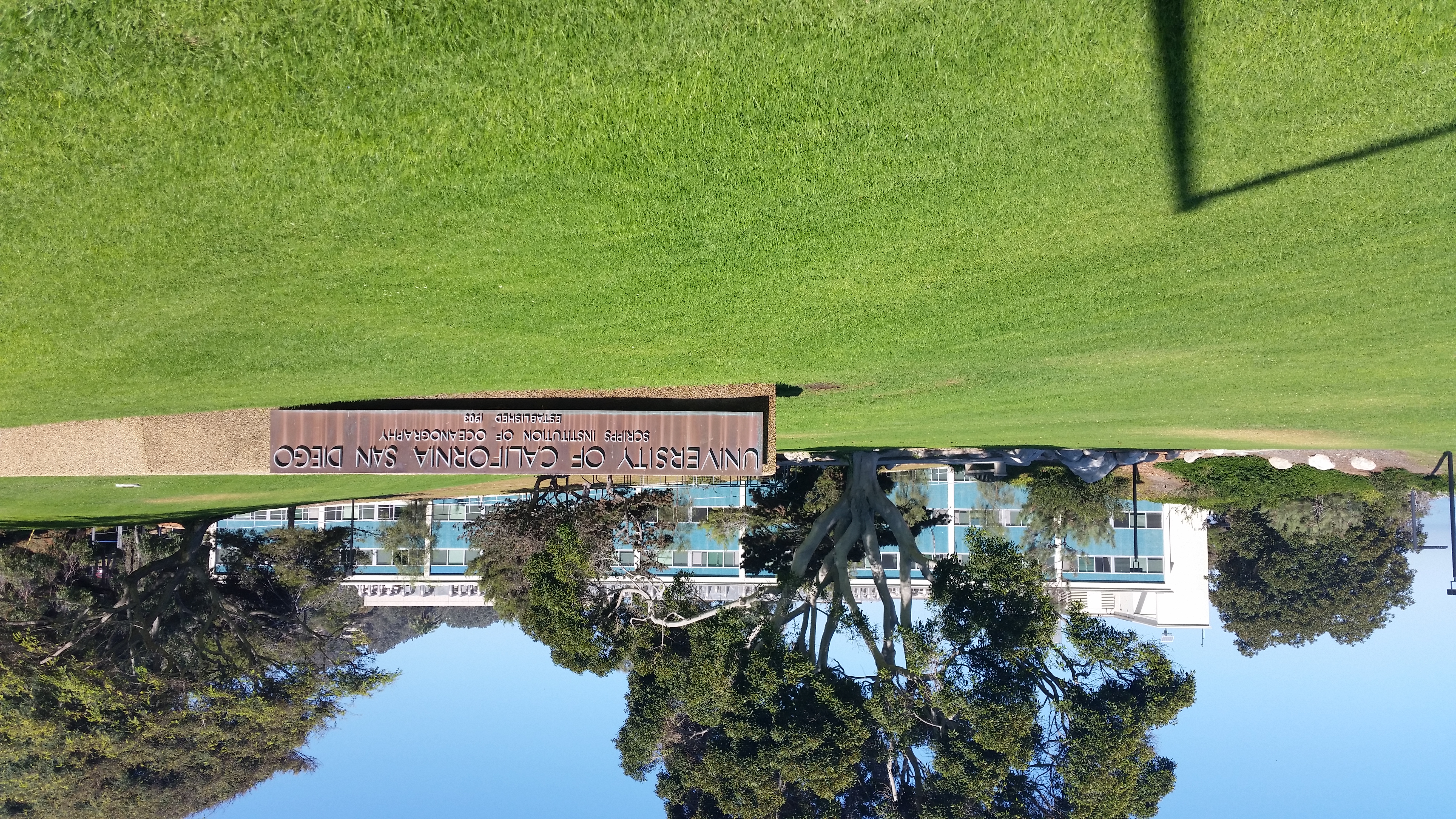|
Panaiotis
Panaiotis, also known as Peter Ward, is an American vocalist and composer, currently living in Albuquerque. He received his Master of Music degree from New England Conservatory and a Ph.D. in music from the University of California, San Diego. He has collaborated with composer and accordionist Pauline Oliveros, together co-founding the Deep Listening Band, and Indian santurist Nandkishor Muley. Discography *''The Ballad of Frankie Silver'' (1994) *''Rising Sun'' (2001), with Nandkishor Muley ;Performer: *''Deep Listening Pauline Oliveros (May 30, 1932 – November 24, 2016) was an American composer, accordionist and a central figure in the development of post-war experimental and electronic music. She was a founding member of the San Francisco Tape Music Cente ...'' (1989) *'' The Ready Made Boomerang'' (1991) *'' Troglodyte's Delight'' (1990) Musical software In 2014, Panaiotis brought his software and compositional talents to createBandojo an app that lets novices cr ... [...More Info...] [...Related Items...] OR: [Wikipedia] [Google] [Baidu] |
Deep Listening Band
The Deep Listening Band (DLB) was founded in 1988 by Pauline Oliveros (accordion, "expanded instrument system", composition), Stuart Dempster (trombone, didjeridu, composition) and Panaiotis (vocals, electronics, composer). David Gamper (keyboards, electronics) replaced Panaiotis in 1990. The band is named after Oliveros' term, concept, program and registered servicemark of the Deep Listening Institute, Ltd., ''Deep Listening'', and specializes in performing and recording in resonant or reverberant spaces such as cathedrals and huge underground cisterns including the Fort Worden Cistern which has a 45-second reverberation time. Milestones and collaborations Deep Listening Band recorded its first, self titled album at Fort Worden Cistern in Port Townsend, WA on October 8, 1988. Al Swanson is credited with the on location recording, while Swanson and Dempster collaborated in editing the recording in December 1988. The initial name ''"The Deep Listening Band"'' and the corresponding ... [...More Info...] [...Related Items...] OR: [Wikipedia] [Google] [Baidu] |
Deep Listening (album)
The Deep Listening Band (DLB) was founded in 1988 by Pauline Oliveros (accordion, "expanded instrument system", composition), Stuart Dempster ( trombone, didjeridu, composition) and Panaiotis ( vocals, electronics, composer). David Gamper (keyboards, electronics) replaced Panaiotis in 1990. The band is named after Oliveros' term, concept, program and registered servicemark of the Deep Listening Institute, Ltd., ''Deep Listening'', and specializes in performing and recording in resonant or reverberant spaces such as cathedrals and huge underground cisterns including the Fort Worden Cistern which has a 45-second reverberation time. Milestones and collaborations Deep Listening Band recorded its first, self titled album at Fort Worden Cistern in Port Townsend, WA on October 8, 1988. Al Swanson is credited with the on location recording, while Swanson and Dempster collaborated in editing the recording in December 1988. The initial name ''"The Deep Listening Band"'' and the corr ... [...More Info...] [...Related Items...] OR: [Wikipedia] [Google] [Baidu] |
The Ready Made Boomerang
The Deep Listening Band (DLB) was founded in 1988 by Pauline Oliveros (accordion, "expanded instrument system", composition), Stuart Dempster ( trombone, didjeridu, composition) and Panaiotis ( vocals, electronics, composer). David Gamper (keyboards, electronics) replaced Panaiotis in 1990. The band is named after Oliveros' term, concept, program and registered servicemark of the Deep Listening Institute, Ltd., ''Deep Listening'', and specializes in performing and recording in resonant or reverberant spaces such as cathedrals and huge underground cisterns including the Fort Worden Cistern which has a 45-second reverberation time. Milestones and collaborations Deep Listening Band recorded its first, self titled album at Fort Worden Cistern in Port Townsend, WA on October 8, 1988. Al Swanson is credited with the on location recording, while Swanson and Dempster collaborated in editing the recording in December 1988. The initial name ''"The Deep Listening Band"'' and the corr ... [...More Info...] [...Related Items...] OR: [Wikipedia] [Google] [Baidu] |
Troglodyte's Delight
The Deep Listening Band (DLB) was founded in 1988 by Pauline Oliveros (accordion, "expanded instrument system", composition), Stuart Dempster ( trombone, didjeridu, composition) and Panaiotis ( vocals, electronics, composer). David Gamper (keyboards, electronics) replaced Panaiotis in 1990. The band is named after Oliveros' term, concept, program and registered servicemark of the Deep Listening Institute, Ltd., ''Deep Listening'', and specializes in performing and recording in resonant or reverberant spaces such as cathedrals and huge underground cisterns including the Fort Worden Cistern which has a 45-second reverberation time. Milestones and collaborations Deep Listening Band recorded its first, self titled album at Fort Worden Cistern in Port Townsend, WA on October 8, 1988. Al Swanson is credited with the on location recording, while Swanson and Dempster collaborated in editing the recording in December 1988. The initial name ''"The Deep Listening Band"'' and the corr ... [...More Info...] [...Related Items...] OR: [Wikipedia] [Google] [Baidu] |
Pauline Oliveros
Pauline Oliveros (May 30, 1932 – November 24, 2016) was an American composer, accordionist and a central figure in the development of post-war experimental and electronic music. She was a founding member of the San Francisco Tape Music Center in the 1960s, and served as its director. She taught music at Mills College, the University of California, San Diego (UCSD), Oberlin Conservatory of Music, and Rensselaer Polytechnic Institute. Oliveros authored books, formulated new music theories, and investigated new ways to focus attention on music including her concepts of "deep listening" and "sonic awareness", drawing on metaphors from cybernetics. She was an Eyebeam resident. Early life and career Oliveros was born in Houston, Texas. She started to play music as early as kindergarten, and at nine years of age she began to play the accordion, received from her mother, a pianist, because of its popularity in the 1940s.Baker, Alan"An interview with Pauline Oliveros" January 2003. '' ... [...More Info...] [...Related Items...] OR: [Wikipedia] [Google] [Baidu] |
Vocalist
Singing is the act of creating musical sounds with the voice. A person who sings is called a singer, artist or vocalist (in jazz and/or popular music). Singers perform music (arias, recitatives, songs, etc.) that can be sung with or without accompaniment by musical instruments. Singing is often done in an ensemble of musicians, such as a choir. Singers may perform as soloists or accompanied by anything from a single instrument (as in art song or some jazz styles) up to a symphony orchestra or big band. Different singing styles include art music such as opera and Chinese opera, Indian music, Japanese music, and religious music styles such as gospel, traditional music styles, world music, jazz, blues, ghazal, and popular music styles such as pop, rock, and electronic dance music. Singing can be formal or informal, arranged, or improvised. It may be done as a form of religious devotion, as a hobby, as a source of pleasure, comfort, or ritual as part of music education or ... [...More Info...] [...Related Items...] OR: [Wikipedia] [Google] [Baidu] |
Composer
A composer is a person who writes music. The term is especially used to indicate composers of Western classical music, or those who are composers by occupation. Many composers are, or were, also skilled performers of music. Etymology and Definition The term is descended from Latin, ''compōnō''; literally "one who puts together". The earliest use of the term in a musical context given by the ''Oxford English Dictionary'' is from Thomas Morley's 1597 ''A Plain and Easy Introduction to Practical Music'', where he says "Some wil be good descanters ..and yet wil be but bad composers". 'Composer' is a loose term that generally refers to any person who writes music. More specifically, it is often used to denote people who are composers by occupation, or those who in the tradition of Western classical music. Writers of exclusively or primarily songs may be called composers, but since the 20th century the terms 'songwriter' or ' singer-songwriter' are more often used, particularl ... [...More Info...] [...Related Items...] OR: [Wikipedia] [Google] [Baidu] |
New England Conservatory
The New England Conservatory of Music (NEC) is a private music school in Boston, Massachusetts. It is the oldest independent music conservatory in the United States and among the most prestigious in the world. The conservatory is located on Huntington Avenue along the Avenue of the Arts near Boston Symphony Hall. NEC is home to 750 students pursuing undergraduate and graduate studies, with 1400 more in its Preparatory School and School of Continuing Education. It offers bachelor's degrees in classical performance, contemporary improvisation, composition, jazz, musicology, and music theory, as well as graduate degrees in accompaniment, conducting, and vocal pedagogy. The conservatory has also partnered with Harvard University and Tufts University to create joint double-degree, five-year programs and provide multi-passionate students access to Boston's premier academic resources. The New England Conservatory's faculty and alumni comprise nearly fifty percent of the Boston Sy ... [...More Info...] [...Related Items...] OR: [Wikipedia] [Google] [Baidu] |
University Of California, San Diego
The University of California, San Diego (UC San Diego or colloquially, UCSD) is a public university, public Land-grant university, land-grant research university in San Diego, California. Established in 1960 near the pre-existing Scripps Institution of Oceanography, UC San Diego is the southernmost of the ten campuses of the University of California, and offers over 200 undergraduate and graduate degree programs, enrolling 33,096 undergraduate and 9,872 graduate students. The university occupies near the coast of the Pacific Ocean, with the main campus resting on approximately . UC San Diego is ranked among the best universities in the world by major college and university rankings. UC San Diego consists of twelve undergraduate, graduate and professional schools as well as seven undergraduate residential colleges. It received over 140,000 applications for undergraduate admissions in Fall 2021, making it the second most applied-to university in the United States. UC San Diego H ... [...More Info...] [...Related Items...] OR: [Wikipedia] [Google] [Baidu] |
Santoor
The Indian santoor instrument is a trapezoid-shaped hammered dulcimer, and a variation of the Iranian santur. The instrument is generally made of walnut and has 25 bridges. Each bridge has 4 strings, making for a total of 100 strings. It is a traditional instrument in Jammu and Kashmir (union territory), Jammu and Kashmir, and dates back to ancient times. It was called ''Shatha Tantri Veena'' in ancient Sanskrit texts. Development In ancient Sanskrit texts, it has been referred to as ''shatatantri vina'' (100-stringed vina). In Kashmir the santoor was used to accompany Music of Kashmir, folk music. It is played in a style of music known as the ''Sufiana Mausiqi''. Some researchers slot it as an improvised version of a primitive instrument played in the Mesopotamian times (1600–900 B.C.) Sufi mystics used it as an accompaniment to their hymns. In Indian santoor playing, the specially-shaped mallets (''mezrab'') are lightweight and are held between the index and middle fingers. ... [...More Info...] [...Related Items...] OR: [Wikipedia] [Google] [Baidu] |

.jpg)


